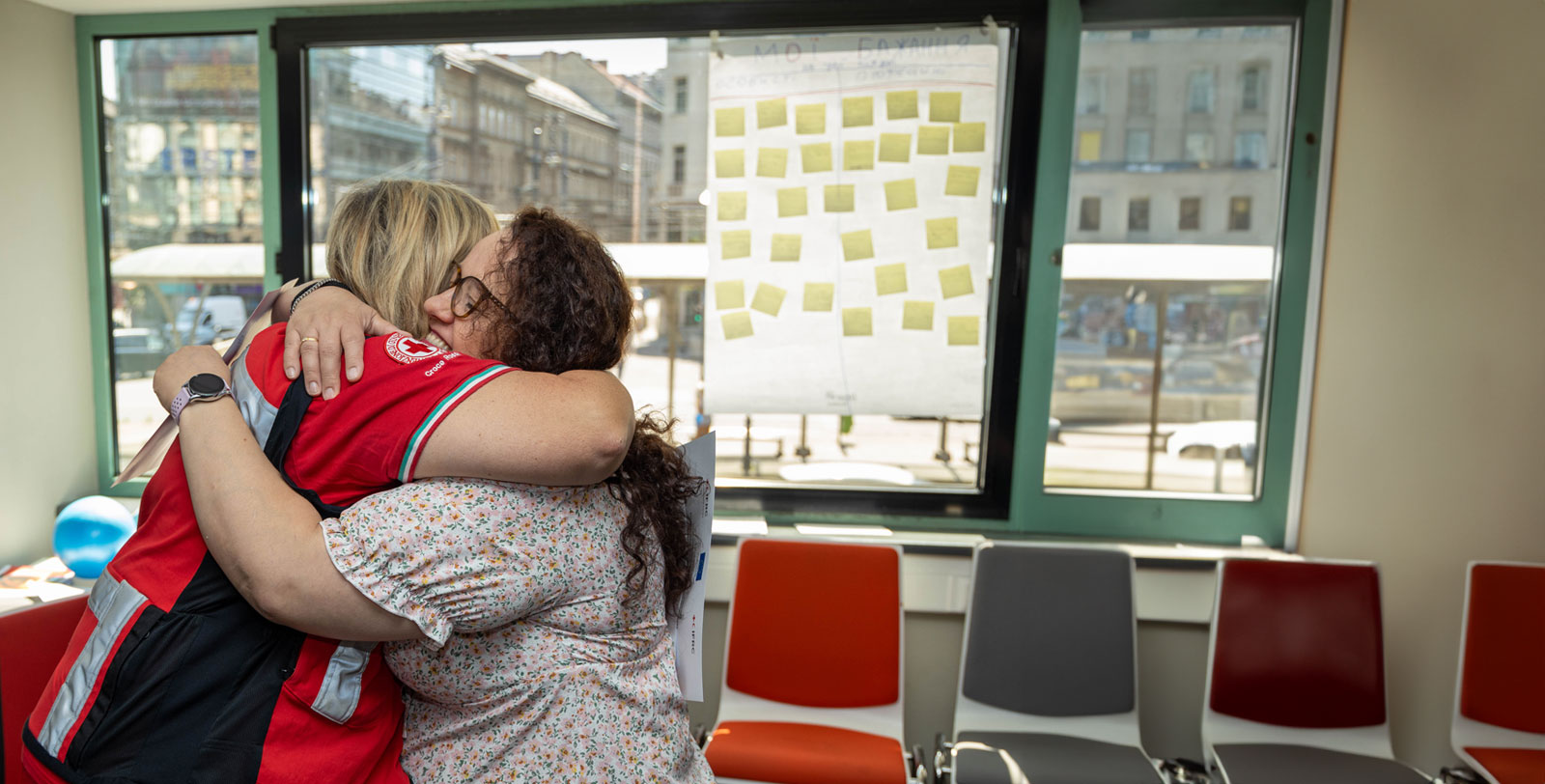We were able to build this sense of cohesion or community that we see a lot in face-to-face training, but it seemed that it is possible to really create that over the span of ten days through a virtual platform.
Louise Graabæk, Youth Advisor and Focal Point for PFA for Young Peers, Danish Red Cross Youth
Kelly McBride, Technical Advisor for the IFRC Reference Centre for Psychosocial Support, interviews Dr. Adam Brown, Director of Trauma and Global Mental Health Lab, Department of Psychology at the New School for Social Research in New York; Orso Muneghina, SOS Children’s Villages International’s Global Hub on Mental Health and Psychosocial Support; and Sarah Harrison, MHPSS technical advisor on MHPSS for the IFRC PS Centre.
Each participant of this podcast episode has contributed to the newly published intervention journal: “Building Mental Health and Psychosocial Support Capacity During a Pandemic: The Process of Adapting Programme Management Plus for Remote Training and Implementation During COVID-19 in New York City, Europe and East Africa.” In response to the sudden rise in COVID-19-related mental health and psychosocial impacts, they embarked on a digital training and remote delivery adaptation for Problem Management Plus Training for Helpers (Remote PM+ Training). While the paper provides an overview of the two Remote PM+ Trainings, including lessons learned and key adaptations, this podcast gave McBride, Dr. Brown, Muneghina and Harrison a chance to share their experiences in overcoming the challenges of conducting trainings on virtual platforms, and to reflect on their key takeaways.This article documents their lessons learned, in hopes of inspiring others to consider important steps in transitioning trainings to online platforms. The trainings were approximately 75 hours in duration over the span of ten days, which required extensive technical support, digital literacy, preparation, and flexibility from both the trainers and the trainees.


